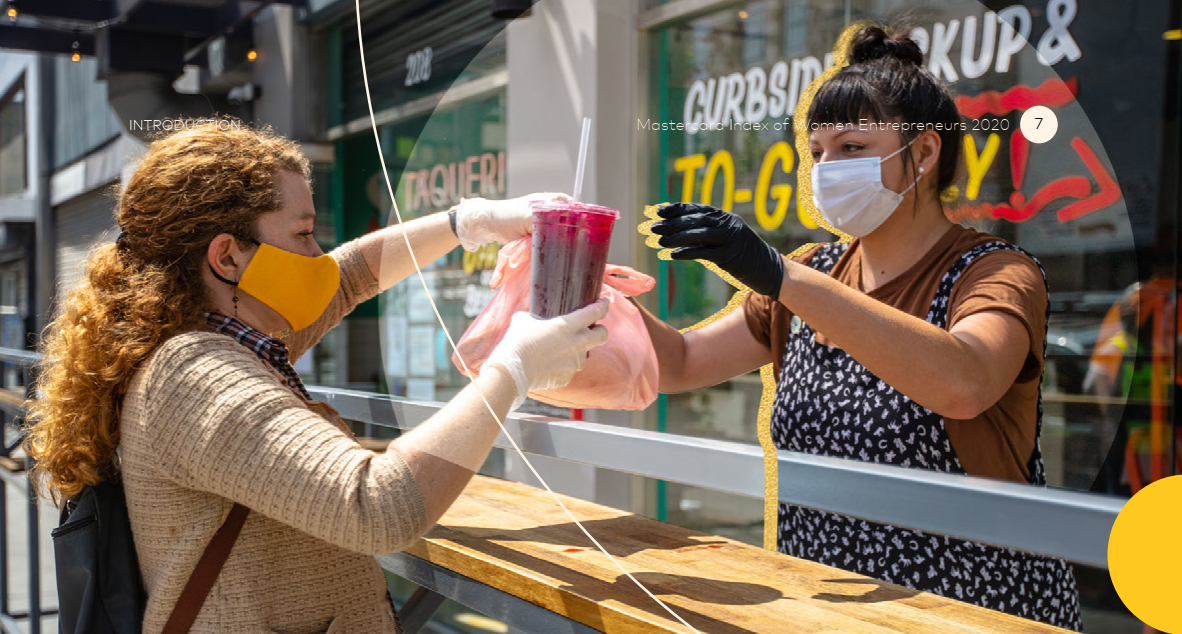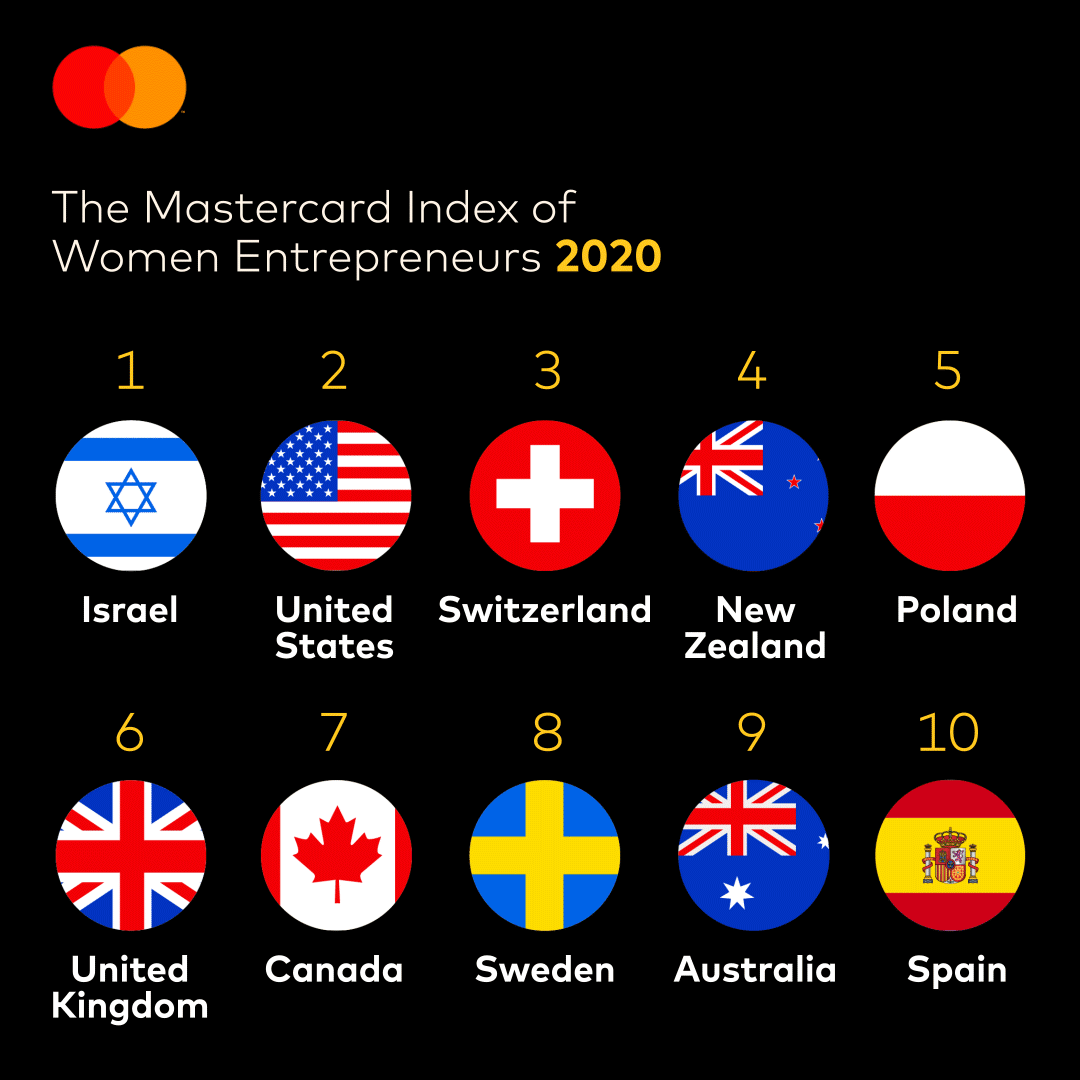Mastercard rolls out inclusive report on women entrepreneurs in COVID-19 times
 |
| Mastercard rolls out inclusive report on women entrepreneurs in COVID-19 times |
According to Mastercard, Women across the world have been disproportionally impacted by the COVID-19 pandemic – a staggering 87 per cent of women business owners say they have been adversely affected.
Overrepresentation in sectors hardest hit by the economic downturn (such as tourism, retail, and food and beverage), the pronounced digital gender gap in an increasingly virtual world, and the mounting pressures of childcare responsibilities are only a few factors that have left women particularly vulnerable, particularly in economies such as Vietnam, South Korea, and Thailand.
In tackling this stark disparity and unlocking the fullest potential of women in business, the Mastercard Index of Women Entrepreneurs (MIWE) 2020 report findings make a compelling case for building on targeted gender-specific policy best practices internationally.
Through a unique methodology – drawing on publicly available data from leading international organisations such as the OECD and International Labour Organization – MIWE 2020 includes a global ranking on the advancement of women in business in pre-pandemic conditions across 58 economies (including 15 in the Asia-Pacific region), representing almost 80 per cent of the female labour force.
 |
| Top 10 Mastercard Index of Women Entrepreneurs (MIWE) 2020 |
MIWE 2020’s top performing economy is a prime example of gender-specific support mechanisms having swift and significant results.
For the first time, Israel topped the MIWE as the best economy for women entrepreneurs worldwide, advancing from fourth place in 2019. With an ambition to double the number of female entrepreneurs within two years, Israel’s success has been driven by a focused institutional backing for SMEs – its support for SMEs’ ranking catapulted from 42nd place in 2019, to first in 2020.
Last year’s strong performers, the US and New Zealand – although dropping from first to second and second to fourth places, respectively – demonstrate that economies with mature gender focused initiatives still outperform on the global stage through continued focus on advancing conditions for women in business.
In both these economies, favourable cultural perceptions of entrepreneurism, the high visibility of female leaders that serve as role models for aspiring entrepreneurs, and supportive entrepreneurial conditions play a crucial role in their success.
| In 2020, Mastercard expanded its worldwide financial inclusion commitment, pledging to bring a total of one billion people and 50 million micro and small businesses into the digital economy by 2025. |
It is noteworthy that the majority of economies (34 out of a total of 58 in this report) have healthy MIWE scores of 60-70 such as Australia, Indonesia, Mainland China, Singapore, Vietnam (63.87), and Malaysia while 13 economies have lower scores of 50-60 such as Japan and India.
Of the 58 markets included in the Index, 12 moved up by five or more ranks against last year, while 10 fell by five or more. The Asia-Pacific’s fast-rising markets include Mainland China (+6) and Indonesia (+5) while the largest drops were seen in Singapore (-12) and the Philippines (-10).
Women in the Asia-Pacific continue to make admirable progress in the business world. The Philippines, Thailand, Vietnam, and New Zealand ranked at second, sixth, night and 10th, respectively, for Women’s Advancement Outcomes which measures progress and the degree of marginalisation economically and professionally as businesses leaders, professionals, entrepreneurs, and labour force participants.
“Through the pandemic, we’ve seen women’s strength and endurance in the face of adversity. If anything, this year has illuminated how vast women’s potential really is,” said Julienne Loh, executive vice president, Enterprise Partnerships, Asia-Pacific, Mastercard. “But this moment in time is fragile unless governments, financial services, and business organisations come together to do three things: offer systemic support and programmes to enable women to survive and thrive in this new normal, equip them with skills to navigate the digital world, and nurture an equitable, accessible financial services system that supports women’s work and entrepreneurship. These are not easy to deliver but investments like these can yield priceless dividends for not only women, but society as a whole.”
“The pandemic has adversely impacted every individual, business, and economy. Yet women entrepreneurs have shown their resilience by promptly adapting to new and digital ways of working, reimagining existing models, and tapping into new business opportunities," said Winnie Wong, country manager, Vietnam, Cambodia and Laos, Mastercard.
“Mastercard is committed to supporting governments and financial institutions to create initiatives and programmes that will empower women entrepreneurs to help drive Vietnam’s economic recovery,” she added.
The MIWE report is just one component in Mastercard’s broader mission to drive forward the advancement of the disconnected and disadvantaged with a particular commitment to support and help advance female entrepreneurs and small businesses through initiatives such as its Start Path and Path to Priceless programmes. In 2020, Mastercard expanded its worldwide financial inclusion commitment, pledging to bring a total of one billion people and 50 million micro- and small-sized businesses into the digital economy by 2025.
As part of this effort, there will be a direct focus on providing 25 million women entrepreneurs with solutions that can help them grow their businesses, through a range of initiatives crossing funding, mentoring, and the development of inclusive technologies.
What the stars mean:
★ Poor ★ ★ Promising ★★★ Good ★★★★ Very good ★★★★★ Exceptional
Related Contents
Latest News
More News
- Wages and Lunar New Year bonuses on the rise (February 09, 2026 | 17:47)
- Temporary relief for food imports as businesses urge overhaul of regulations (February 07, 2026 | 09:00)
- Opella and Long Chau join forces to enhance digestive and bone health (February 06, 2026 | 18:00)
- Vietnam-South Africa strategic partnership boosts business links (February 06, 2026 | 13:28)
- Sun PhuQuoc Airways secures AJW Group support for fleet operations (February 06, 2026 | 13:23)
- Pegasus Tech Ventures steps up Vietnam focus (February 05, 2026 | 17:25)
- The generics industry: unlocking new growth drivers (February 04, 2026 | 17:39)
- Vietnam ready to increase purchases of US goods (February 04, 2026 | 15:55)
- Steel industry faces challenges in 2026 (February 03, 2026 | 17:20)
- State corporations poised to drive 2026 growth (February 03, 2026 | 13:58)

 Tag:
Tag:

























 Mobile Version
Mobile Version